- Home
- Alison Weir
The Lady Elizabeth
The Lady Elizabeth Read online
CONTENTS
TITLE PAGE
DEDICATION
THE TUDORS
PART ONE THE KING’S DAUGHTER
CHAPTER 1
CHAPTER 2
CHAPTER 3
CHAPTER 4
CHAPTER 5
CHAPTER 6
CHAPTER 7
CHAPTER 8
CHAPTER 9
CHAPTER 10
CHAPTER 11
PART TWO THE KING’S SISTER
CHAPTER 12
CHAPTER 13
CHAPTER 14
CHAPTER 15
PART THREE THE QUEEN’S SISTER
CHAPTER 16
CHAPTER 17
CHAPTER 18
CHAPTER 19
CHAPTER 20
CHAPTER 21
CHAPTER 22
AUTHOR’S NOTE
ACKNOWLEDGMENTS
Excerpt from Mary Boleyn
ABOUT THE AUTHOR
ALSO BY ALISON WEIR
COPYRIGHT
To my dear friends
Tracy Borman,
Sarah Gristwood,
Kate Williams,
Martha Whittome,
Ann Morrice,
and
Siobhan Clarke
for all their help and support,
with much love.
THE TUDORS
CHAPTER 1
1536
On a hot, still morning in July, the Lady Mary, daughter to King Henry the Eighth, arrived at the great country palace of Hatfield, trotting into the courtyard on a white palfrey followed by four gentlemen, two ladies-in-waiting, and a female fool.
As soon as she had dismounted, she stooped to kiss the small girl who was waiting to greet her, whose nurse had just reminded her to sketch a wobbly curtsy to the older sister she had not seen for many months. The child was solemn-faced, fair-skinned, and freckled, with long tendrils of burnished red hair escaping from the embroidered white coif that was tied beneath her chin.
“My, you have grown, sweeting!” Mary exclaimed in her gruff voice, stroking Elizabeth’s hair and straightening her silver pendant. “You’re nearly three now, aren’t you?” Elizabeth stared back, unsure of this richly dressed lady with the sad face and skinny body. Mary was not beautiful like Elizabeth’s mother: Mary had a snub nose and a downturned mouth, and although her hair was red like Elizabeth’s and their father’s, it was thin and frizzy. And of course, Mary was very old—all of twenty years, she had been told.
“I have brought you gifts, Sister,” Mary said, smiling and beckoning to a lady-in-waiting, who brought over a wooden box. Inside, wrapped in velvet, was a rosary of amber beads and a jeweled crucifix.
“For your chapel,” Mary said, pointing to the latter.
“Pretty,” said Elizabeth, gently fingering the beads.
“How does my sister, Lady Bryan?” Mary rose to her feet and greeted the governess with a kiss. “And you yourself? It is good to see you again, but I would it were in happier circumstances.”
“I too, my Lady Mary. We are well enough, both of us, I thank you,” the woman answered.
Elizabeth, watching them, was slightly discomfited by their words and curious at seeing a pained expression fleetingly shadow Mary’s plain features.
“I will speak with her presently,” her sister said. Lady Bryan nodded.
“I am grateful, Your Grace,” she said. “I pray you eat first, for it is nigh to eleven o’clock and dinner is almost ready.” Elizabeth was no longer listening; her attention had now focused on her new beads.
“I have brought my fool, to afford a diversion later, if need be,” Mary said, and Elizabeth’s ears pricked up. She liked fools. They were funny.
While the roast goose and hot salad were being served with appropriate ceremony to Mary in the great hall, Elizabeth was sent to the nursery to have her dinner.
“I hope Your Grace will excuse us,” the nurse said to the Lady Mary. “The Lady Elizabeth’s Grace is too young as yet to eat with the grown-ups.” After being pressed into another curtsy, the child was led away by the hand.
As soon as she had gone, Mary laid down her knife and shook her head sadly.
“I hardly know how I am going to tell her, Margaret,” she said miserably, looking to her former governess for support.
Lady Bryan rested a comforting hand on hers.
“I wouldn’t be too explicit if I were you, Madam.”
“Oh, no,” agreed Mary fervently. “Does she often speak of her mother? Do you think she will be much discomforted? After all, she cannot have seen much of her.”
“I’m afraid she did. Her Grace—I mean the lady her mother—kept the child with her, more than was seemly for a queen. If you remember, she even refused to have a wet nurse,” Lady Bryan recalled with a sniff of disapproval.
Mary looked at her with mounting anxiety. She was dreading the coming confrontation.
“Do you think she will understand?” she asked.
“There is much she understands,” Lady Bryan replied. “My lady is more than ordinarily precocious. As sharp as nails, that child, and clever with it.”
“But a child for all that,” Mary said, “so I will break it to her as gently as I can, and may our Holy Mother and all the saints help me.”
Seeing her so distressed, Lady Bryan sought to steer the conversation away from the subject, but while she and Sir John chattered on about household matters and the state of the weather, and while all of them toyed with their food, having little appetite for it, Mary, her heart swelling with love and compassion for her little sister, could only think of the heavy task that lay ahead of her.
Why should she feel this way? she asked herself. Why had she agreed to come here and perform this dreadful errand? Elizabeth’s very existence had caused her untold pain and suffering, and it was because of Elizabeth’s mother, that great whore, Anne Boleyn, that Mary had lost all that she held dear in life: her own mother, the late sainted Queen Katherine, her rank, her prospects of a throne and marriage, and the love of her father the King. Yet Mary had found nothing to resent in an innocent child, had in fact lavished all the love of which she was capable on the engaging little creature, and now, when the perilous twists of cruel fate had reversed Elizabeth’s fortunes too, she could only grieve for the little girl.
As soon as the meal was finished, Elizabeth was brought back to her sister, and together they walked in the sun-browned park, away from the palace, their attendants following a short distance behind. The daystar was blazing down, there was barely the stir of a breeze, and the sisters were sweltering in their long-sleeved silk gowns; Elizabeth was glad of her wide-brimmed straw hat, which protected her face from the sunshine and the glare, while Mary, wearing a smart French hood with a band under the chin, was suffering decorously. Her lips were pursed, and she looked unhappy, Elizabeth noticed.
“You have been much in my thoughts, Sister,” Mary said. “I had to come and see you, to satisfy myself that all was well with you, and…” Her voice trailed away.
“Thank you, Sister,” Elizabeth replied. Again, Mary caressed the long red curls that fanned out beneath the sun hat; again, she looked unutterably sad. Young as she was, the child could sense her misery.
“What’s wrong?” Elizabeth asked. “Why are you unhappy?”
“Oh, my dear Sister,” Mary cried, sinking to her knees on the grass and embracing Elizabeth tightly. Elizabeth struggled free. She did not like to be squeezed like that; she was a self-contained child. Yet Mary did not notice, for she was weeping. Elizabeth could see Lady Bryan watching them intently, standing a little way off with Mary’s ladies and the nursemaids, and she was puzzled as to why her governess did not hasten to her rescue.
“Come, Sister,�
�� Mary was saying, sniffing and dabbing her eyes with a white kerchief. “Let us sit here.” She drew Elizabeth to a stone seat that had been placed in the shade of an oak tree to afford those who rested there a grand view of the red-brick palace spread out beyond the formal gardens, and lifted the child onto it.
“I am charged by our father to tell you something that will make you very sad,” Mary said. “You must be a brave girl…as I too have had to be brave in my time.”
“I am brave,” Elizabeth assured her, none too confidently, wondering fearfully what this was all about.
Nothing had changed outwardly—her daily routine had remained the same, and the people in her household still curtsied to her and treated her with deference. If it hadn’t been for something her governor had said, she would not have realized there was anything untoward. But she was a sharp child, and the change of title did not go unnoticed.
“Why, governor,” she had asked Sir John Shelton, in her clear, well-modulated voice, “why is it that yesterday you called me Lady Princess, and today just Lady Elizabeth?”
Caught off guard, Sir John Shelton had pulled at his luxuriant chestnut beard, frowned, and hesitated, while Elizabeth stood before him, her steely gaze imperiously demanding a response. Not for the first time, he was struck by this regal quality in her, which in his opinion was unsuited to the female condition but would have been admirable in a prince, the prince that England so desperately needed.
“The King your father has ordered it,” he said carefully.
“Why?” asked the child, her dark eyes narrowing.
“The King’s orders must always be obeyed,” he declared.
The little face clouded, the lips pouting, the brows furrowing. Sir John had sidestepped the question, but Elizabeth was determined not to let him off so easily. At that moment, mercifully for him, Lady Bryan entered the room. Always immaculate in her dark velvet gowns, with never a hair nor any detail of dress out of place, she had been ruling her army of nursemaids, servants, and household officers with quiet authority since her royal charge had been given her own establishment at the age of three months.
Lady Bryan was carrying a pile of freshly laundered linen strewn with herbs, heading for the carved chest that stood at the foot of Elizabeth’s bed. Seeing Sir John, who had overall charge of the household, she dipped a neat curtsy without in any way sacrificing her dignity, then bent to her task. But Elizabeth was tugging at her skirts. Surely her governess, who knew everything, would tell her the answer to her question.
“My lady,” she pleaded, “I have asked Sir John why he called me Lady Princess yesterday, and Lady Elizabeth today. Why is that?”
Elizabeth was stunned to see tears well up in her governess’s eyes. Lady Bryan, who was always so calm, so composed, so in control—was she really about to cry? She, who was always instructing Elizabeth that a lady never betrayed her feelings, never laughed too loudly or gave way to tears. It was unimaginable, and thus shocking. But perhaps she had imagined it, for when she looked again, Lady Bryan was perfectly in command of herself.
“You have a new title, my Lady Elizabeth,” she said, in a voice that was clearly meant to reassure. “The King’s Highness has decreed it.”
“But why?” persisted the child. She had a sense of things hidden from her…
“I’m sure the King has very good reasons,” answered Lady Bryan in a tone that forbade further discussion. “Now, where are those dolls you were playing with earlier?”
“I put them to bed,” said Elizabeth, plainly not interested.
“In the morning? The very idea!” exclaimed her governess. “Look, I’ve got some pretty silks in my basket, and some scraps of Holland cloth. Go and fetch your best doll, and I’ll help you to make a cap for her.”
Elizabeth toddled reluctantly to the miniature cradle by her bed. It was clear that the answers to her questions would not be forthcoming.
Elizabeth often sat with her governess, being taught the things that all well-brought-up little girls needed to know. They might look at the vivid pictures in one of the beautifully illuminated books that the King had provided, or sort through embroidery silks, Lady Bryan allowing the child to pick the colors herself. Then she would teach Elizabeth how to make rows of different stitches. Elizabeth learned this quickly, as she learned everything. Already, she knew her alphabet, and her numbers up to one hundred, and in chapel she was already striving to understand the Latin rubric of the Mass.
“What is Father Matthew saying?” she would pipe up, ever inquisitive, and Lady Bryan would put a finger to her lips and explain patiently, murmuring in a low voice. Afterward, Elizabeth would pester the chaplain, urging him to teach her the words and phrases that so intrigued her.
“I do declare that my Lady Princess has the gift of languages,” he told Sir John Shelton and Lady Bryan, and indeed he appeared to be right, for Elizabeth had just to hear a thing said once and she had it by heart.
When the embroidering palled—after all, Elizabeth was only in her third year, and her quick, darting mind was always flitting on to the next thing—Lady Bryan would see to it that her day was filled with distractions: a walk in the great wide park of Hatfield, a visit to the stables to see her dappled pony, or a spell in the kitchens to watch the cook making marchpane, which she was allowed to sample after it had cooled; the child had an inordinately sweet tooth. Then a story—nothing too somber, but perhaps that old tale of Master Chaucer’s about Chanticleer the cock, which always made Elizabeth laugh out loud; and after this, a light supper of pottage and bread, then prayers and bedtime.
Once Elizabeth was settled in her comfortable bed, with its feather mattress, crisp heavy linen, rich velvet counterpane and curtains, and the arms of England embroidered on its tester, Lady Bryan would sign the cross on her forehead then leave her to go to sleep, settling herself with a book in a high-backed chair by the fire, a candle flickering at her side. The room would be warm, and soon she herself would be slumbering, her book abandoned on her lap.
Elizabeth, however, would lie wide awake, her fertile mind active, puzzling over the mysteries and marvels of her life…
Her earliest memories were of her father. Her big, magnificent father, King Harry the Eighth, the most wonderful being in the world. It was Elizabeth’s greatest grief that she did not see him very often. The rare occasions on which he visited her at Hatfield were the most exciting days of all. God-like in his rich velvets and furs, his jewels and chains, he would chuck her under the chin, then swing her up in the air and whirl her around, she shrieking with delight, her beribboned cap askew and her long red tresses flying.
“How does my little Bessy?” he would inquire. “Are they keeping you hard at your books and your prayers, or do they let you out to play as often as they should?” And he would wink conspiratorially, so that Elizabeth could know that it was all right to say yes, she did spend a lot of time playing, and that she loved the latest doll or toy he had sent her.
“But I do learn my letters, sir, and my catechism,” she would tell him.
“Well and good, well and good,” he would say, pulling her onto his wide lap and sitting her on strong muscular thighs, with her cheek against the brilliant rough surface of his doublet, which was encrusted with gems and goldsmiths’ work. She would breathe in the wholesome smell of him, a smell of herbs, musky perfume, and the great outdoors, and nestle against him, enjoying the sensation of his bristly red beard tickling the top of her forehead.
“I will tell you something, Bessy,” he said once. “When I was a young king, I did not wish to be at my prayers or attending to state affairs; I wanted to enjoy life. So can you guess what I did? I would sneak out of the palace by a back stair and go hunting, and my councillors would never know I had gone.”
“Didn’t you get into trouble?” Elizabeth posited, wide-eyed.
“Hah!” roared her father. “I am the King. They would never have dared!”
“Can you do what you like when you are king?” she a
sked, a whole new vista of freedom opening up in her mind.
“Of course I can,” her father replied. “People have to do my will.” There was an edge to his voice that, young as she was, she missed.
“Then,” she told him, “I am going to be king when I grow up.”
She had not understood at the time why this angered him. Suddenly, he was no longer her loving father, but a man of steel, cold of visage, and inexplicably cross. Without a word, he put her from him, setting her none too gently on the floor, and drew himself up to his towering height, a big bulk of a man, powerful and daunting.
“You can never be a king,” he told her in a voice as quiet as it was menacing. “Until you have a brother, you are my heir, but it is against Nature and the law of God for a woman to rule, so enough of such foolishness, for I will have a son to succeed me!” Then he was gone, his broad figure disappearing through the oak door of the nursery. But he had been back to visit her since, as cheery and as boisterous as if nothing had upset him. She had understood by that that his rages were but passing storms.
Whenever her father came, her quiet, ordered world would explode into color, gaiety, and noise. He was always surrounded by brilliantly dressed gentlemen and ladies—who made much of her—and attended by hordes of ministers, officers, and servants, many of whom, she was told, were very important people. She watched them all flattering and fawning upon her father, and was impressed when they always did exactly as he ordered. It was marvelous to be the daughter of such a king.
She was a great lady; her father had often said it. All must bow to her, and none scant their respect to her, for she too was important. That was why she lived away from the court in her own household, with her own servants. She was the Princess of England, and—Lady Bryan had revealed—one day, if God did not see fit to send her a brother, she would be its queen, despite what her father had said to her that time. Something called Parliament had decreed it, and no one could gainsay that.
These were more recent memories. The first thing she could remember was her father carrying her in his arms about the court, that glittering world where he lived, and showing her off to all the lords and ladies. Both he and she had been wearing yellow, and she had been aware that it was a special occasion, although she wasn’t sure why. Her father kept saying how pleased he was that some old harridan was dead, but Elizabeth had no idea of whom he spoke, and only the vaguest notion of what dead meant.

 Richard III and the Princes in the Tower
Richard III and the Princes in the Tower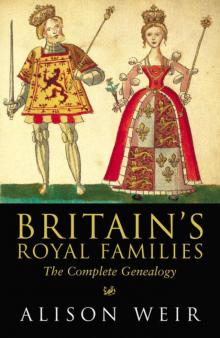 Britain's Royal Families: The Complete Genealogy
Britain's Royal Families: The Complete Genealogy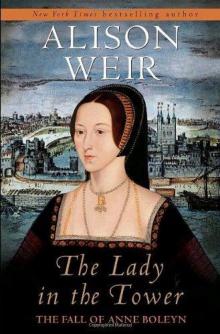 The Lady in the Tower: The Fall of Anne Boleyn
The Lady in the Tower: The Fall of Anne Boleyn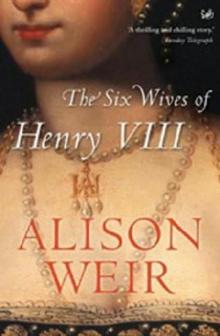 Six Wives of Henry VIII
Six Wives of Henry VIII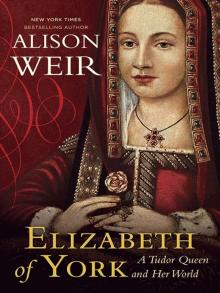 Elizabeth of York: A Tudor Queen and Her World
Elizabeth of York: A Tudor Queen and Her World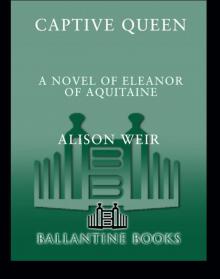 Captive Queen
Captive Queen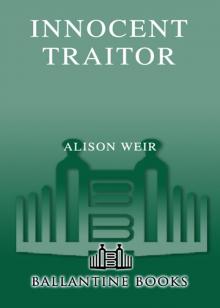 Innocent Traitor
Innocent Traitor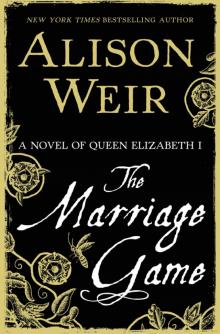 The Marriage Game
The Marriage Game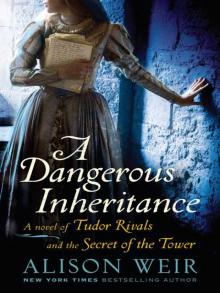 A Dangerous Inheritance
A Dangerous Inheritance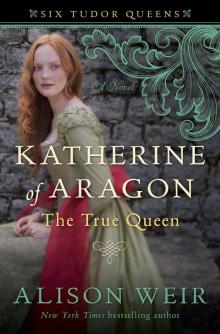 Katherine of Aragón: The True Queen
Katherine of Aragón: The True Queen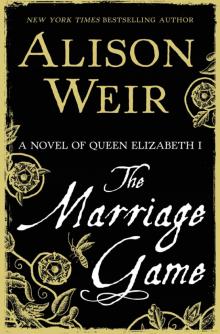 The Marriage Game: A Novel of Queen Elizabeth I
The Marriage Game: A Novel of Queen Elizabeth I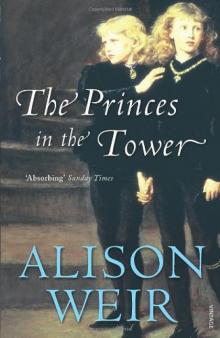 Princes in the Tower
Princes in the Tower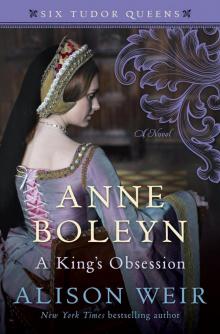 Anne Boleyn: A King's Obsession
Anne Boleyn: A King's Obsession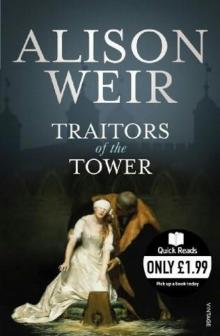 Traitors of the Tower
Traitors of the Tower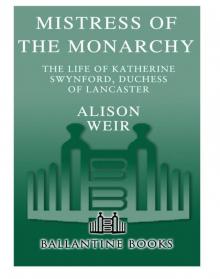 Mistress of the Monarchy: The Life of Katherine Swynford, Duchess of Lancaster
Mistress of the Monarchy: The Life of Katherine Swynford, Duchess of Lancaster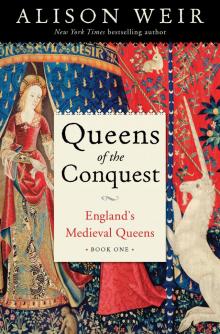 Queens of the Conquest: England’s Medieval Queens
Queens of the Conquest: England’s Medieval Queens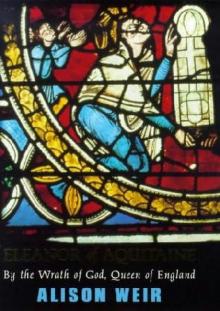 Eleanor of Aquitaine: A Life
Eleanor of Aquitaine: A Life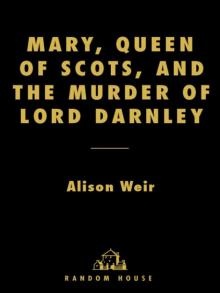 Mary, Queen of Scots, and the Murder of Lord Darnley
Mary, Queen of Scots, and the Murder of Lord Darnley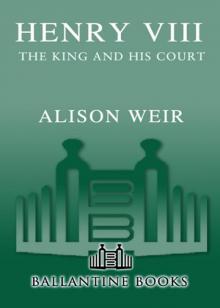 Henry VIII: The King and His Court
Henry VIII: The King and His Court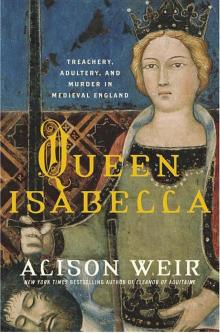 Queen Isabella: Treachery, Adultery, and Murder in Medieval England
Queen Isabella: Treachery, Adultery, and Murder in Medieval England Katheryn Howard, the Scandalous Queen
Katheryn Howard, the Scandalous Queen Arthur- Prince of the Roses
Arthur- Prince of the Roses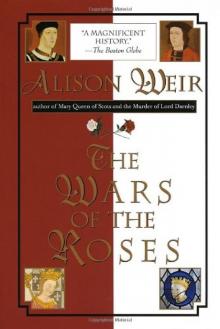 The Wars of the Roses
The Wars of the Roses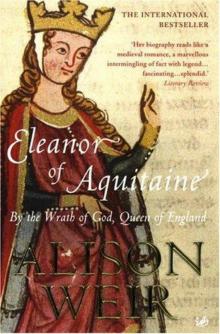 Eleanor of Aquitaine: By the Wrath of God, Queen of England
Eleanor of Aquitaine: By the Wrath of God, Queen of England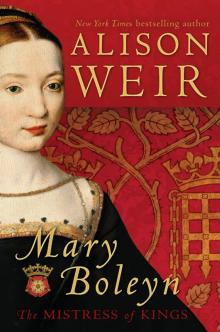 Mary Boleyn: The Great and Infamous Whore
Mary Boleyn: The Great and Infamous Whore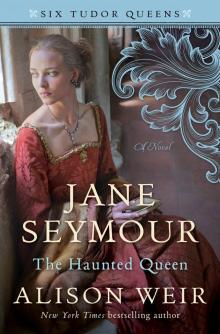 Jane Seymour: The Haunted Queen
Jane Seymour: The Haunted Queen Anna of Kleve, the Princess in the Portrait
Anna of Kleve, the Princess in the Portrait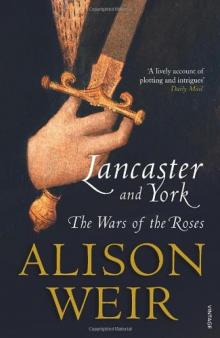 Lancaster and York: The Wars of the Roses
Lancaster and York: The Wars of the Roses The Grandmother's Tale
The Grandmother's Tale The Princess of Scotland (Six Tudor Queens #5.5)
The Princess of Scotland (Six Tudor Queens #5.5)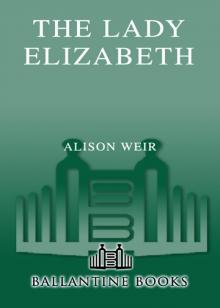 The Lady Elizabeth
The Lady Elizabeth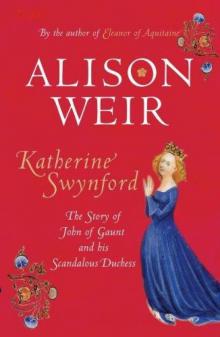 Katherine Swynford: The Story of John of Gaunt and His Scandalous Duchess
Katherine Swynford: The Story of John of Gaunt and His Scandalous Duchess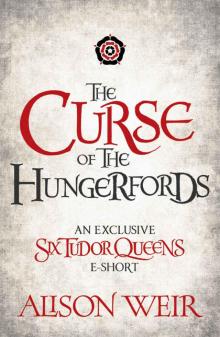 The Curse of the Hungerfords
The Curse of the Hungerfords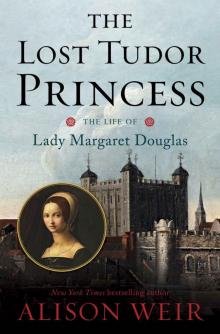 The Lost Tudor Princess: The Life of Lady Margaret Douglas
The Lost Tudor Princess: The Life of Lady Margaret Douglas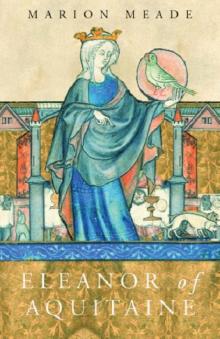 Eleanor of Aquitaine
Eleanor of Aquitaine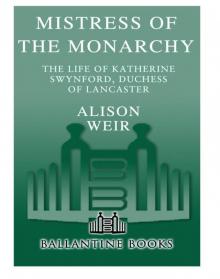 Mistress of the Monarchy
Mistress of the Monarchy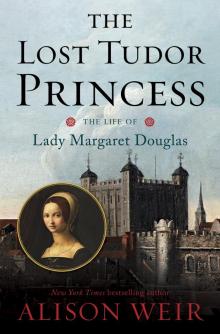 The Lost Tudor Princess
The Lost Tudor Princess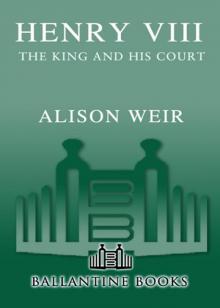 Henry VIII
Henry VIII Anne Boleyn, a King's Obsession
Anne Boleyn, a King's Obsession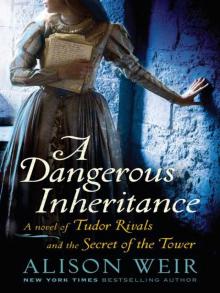 A Dangerous Inheritance: A Novel of Tudor Rivals and the Secret of the Tower
A Dangerous Inheritance: A Novel of Tudor Rivals and the Secret of the Tower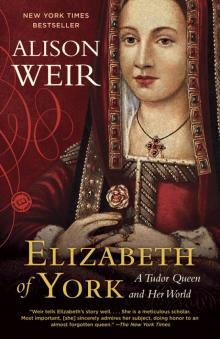 Elizabeth of York
Elizabeth of York Katherine of Aragon, the True Queen
Katherine of Aragon, the True Queen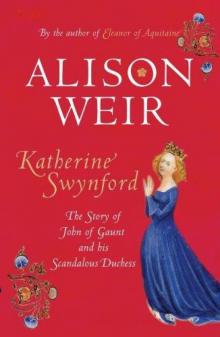 Katherine Swynford
Katherine Swynford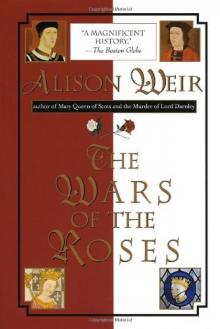 Wars of the Roses
Wars of the Roses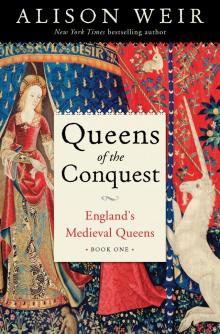 Queens of the Conquest
Queens of the Conquest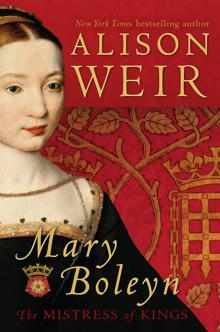 Mary Boleyn
Mary Boleyn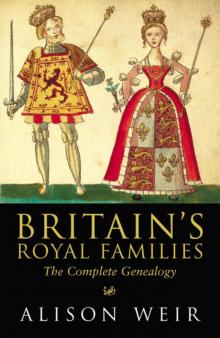 Britain's Royal Families
Britain's Royal Families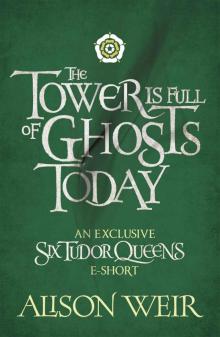 The Tower Is Full of Ghosts Today
The Tower Is Full of Ghosts Today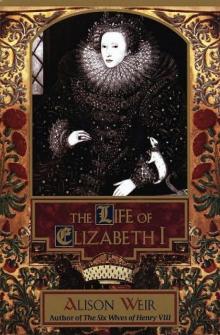 Life of Elizabeth I
Life of Elizabeth I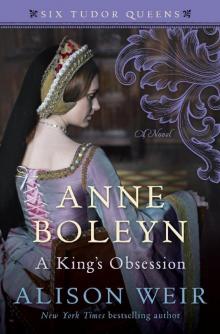 Anne Boleyn A King's Obssession
Anne Boleyn A King's Obssession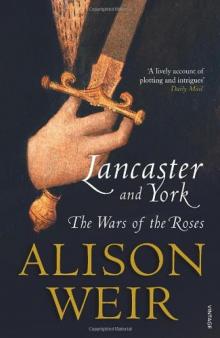 Lancaster and York
Lancaster and York Jane Seymour, the Haunted Queen
Jane Seymour, the Haunted Queen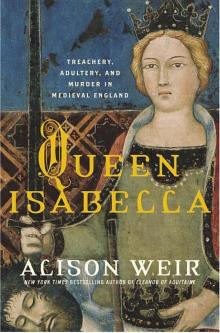 Queen Isabella
Queen Isabella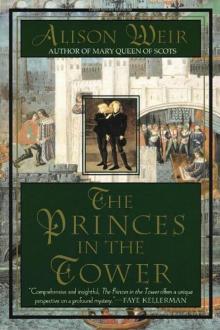 The princes in the tower
The princes in the tower